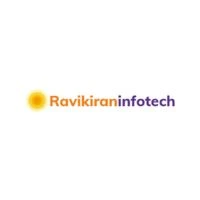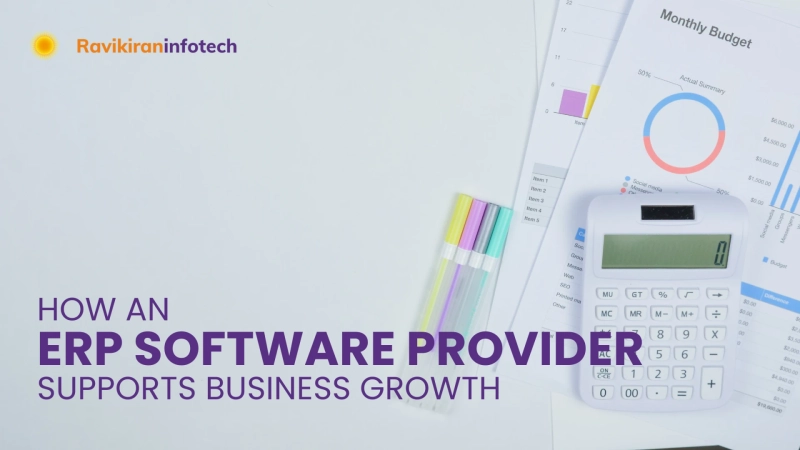If you run a growing business, you already know that the real challenge is not just making sales. It is keeping operations running smoothly while you expand. That’s where an ERP software provider comes in. With the right technology, you can keep every part of your company, finance, sales, inventory and HR aligned and ready to handle more customers, more data, and more decisions.
In this article, we will break down how ERP systems can help your business scale without chaos, why the right ERP implementation strategy matters, and how it connects to sustainable growth. Whether you are in manufacturing, retail or services, the principles are the same: the right ERP solution will make growth not just possible, but manageable.
What an ERP Software Provider Really Does
An ERP software provider isn’t just selling you a piece of software. They are giving you a platform that connects your entire business in one place. ERP combines accounting, inventory, payroll, and client orders into a single system. This allows data to flow easily across departments.
Imagine it as the equivalent of swapping out a bunch of mismatched tools for one strong machine. Since all teams use the same data, decision-making is accelerated, errors are reduced and duplication is minimized.
A good provider will:
- Understand your industry and business model
- Offer scalable ERP solutions that grow with your needs
- Support you through implementation and beyond
- Provide training so your team gets full value from the system
The Link Between Scalability and ERP
Scalability is the ability of your company to develop without failing under pressure, whether that growth takes the form of additional clients, transactions or locations. Internal capacity, not market demand, is the true bottleneck for the majority of businesses. Even if you have all the orders in the world, you will still lose opportunities and disappoint clients if your systems are unable to process them effectively.
Scalable ERP solutions solve this by:
- Automating repetitive tasks so your team spends time on high value work.
- Centralizing data so you can see performance in real time.
- Supporting integration with other tools as your needs change.
- Handling higher transaction volumes without slowdowns.
Why an ERP Implementation Strategy Matters
Even the best ERP software can fail if it is not implemented correctly. Your ERP implementation strategy is the blueprint for getting from purchase to full operation without disrupting daily business.
A strong strategy includes:
- Clear goals: Are you focusing on faster reporting? Better inventory control? Automated payroll?
- Data migration plan: Moving from old systems to ERP requires clean and accurate data.
- Training programs: Your employees need to know how to use the system from day one.
- Phased rollout: Implementing modules in stages can reduce risks.
The right ERP software provider will guide you through this process. They will help you avoid common problems. Such as skipping proper testing or underestimating the time needed for change management.
ERP as a Driver for Sustainable Growth
Sustainable growth means more than just increasing revenue. It is about building systems that can support expansion without constant firefighting. ERP plays a critical role here.
Here is how:
- Consistent processes: Whether you have one office or ten, ERP ensures the same workflows are followed everywhere.
- Data driven decisions: With built in reporting and analytics, you can spot trends early and adapt quickly.
- Resource optimization: From staff scheduling to supplier management, ERP ensures you are using resources effectively.
This is especially important for businesses looking to expand into new markets. You can replicate the same successful operations model without starting from scratch each time.
The Role of Business Intelligence in ERP
Modern ERP systems don’t just store data, they help you understand it. This is where business intelligence comes in. Integrated analytics tools can show you which products sell best in certain seasons, which suppliers offer the best delivery times and where operational bottlenecks occur.
For example:
- Sales teams can track customer buying patterns to improve offers.
- Operations managers can see which processes cause delays.
- Finance teams can forecast more accurately based on historical data.
An IT software solutions company that offers ERP will typically also provide BI features or integrations. That means you can move from reactive decision making to proactive planning.
ERP for Different Business Stages
Your needs as a startup are very different from your needs as a mid-sized company and they will be different again when you hit the enterprise level. That is why choosing scalable ERP solutions matters.
For small businesses:
- Replace multiple disconnected apps
- Provide better visibility into cash flow
- Reduce time spent on manual admin
For mid-sized businesses:
- Manage growing transaction volumes
- Improve supply chain coordination
- Standardize reporting across departments
For large enterprises:
- Support global operations in multiple currencies and languages
- Integrate advanced modules like AI forecasting
- Maintain compliance with complex regulations
Common Mistakes Businesses Make With ERP
Even with a good system, mistakes in implementation or usage can slow down progress. Some of the most common include:
- Not planning for future needs: Choosing a system that works today but can’t scale tomorrow.
- Ignoring employee training: If staff don’t use the system correctly, you lose the benefits.
- Poor data migration: Bringing in messy data leads to bad reporting and decision-making.
- Skipping customization: ERP is flexible, but you need to configure it to match your workflows.
A reliable ERP software provider will anticipate these challenges and offer solutions before they become costly problems.
How to Choose the Right ERP Software Provider
Since ERP is a long term investment, picking the right partner is critical.
Here is what to look for:
- Industry experience: They should understand your specific challenges.
- Proven scalability: Their solutions should grow with your business.
- Strong support: You’ll need help long after the system goes live.
- Integration options: The system should work with your existing tools.
- Clear ERP implementation strategy: They should guide you through every step.
When in doubt, ask for case studies or references. A good provider will be proud to share their track record.
Future Trends in ERP for Scalability and Growth
ERP technology continues to evolve, and the next few years will see even more powerful features for scalability:
- Cloud-based ERP: Faster updates, easier access and lower upfront costs.
- AI-driven analytics: Predict trends before they happen.
- Mobile ERP access: Manage operations on the go.
- Greater customization: Tailor workflows without heavy coding.
An IT software solutions company that stays ahead of these trends will ensure your ERP investment keeps paying off for years to come.
Conclusion
Scaling a business is a balancing act. You want to grow fast enough to capture opportunities but steady enough to keep operations under control. ERP is one of the few tools that directly supports both goals.
The right ERP software provider, such as Ravikiran Infotech, will deliver scalable ERP solutions. We guide you through a solid ERP implementation strategy and help you achieve sustainable growth backed by business intelligence.
In a world where the companies that adapt fastest often win, having that level of operational control isn’t just an advantage, it’s essential.


